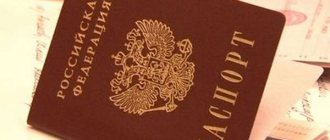According to ancient tradition, after the wedding, a woman goes to her husband’s family and takes his surname. According to the current laws of the Russian Federation, women are not required to change their last name after registering a marriage and can even choose to keep their maiden name or take a double one, combining their own and their husband’s last name.
In the article we will consider the issue of changing a surname upon marriage, what is important for newlyweds to know about the possibilities of choosing it, taking a common surname or staying with their own, the nuances of getting a double surname.
Law and name change
To understand how this issue is regulated at the legislative level, you need to refer to Article No. 32 of the Family Code of the Russian Federation. It clearly states that a citizen has the right to change his surname upon marriage, as well as upon its dissolution, and referring to Article No. 58 of the Civil Code of the Russian Federation, we can affirmatively say that a person who has reached 14 years of age can apply to change his surname, name and patronymic in the registry office at the place of registration or at the place of state registration of birth of this person. At such a young age, a change of full name will take place with the consent of both parents or a court decision. After reaching the age of majority, no one’s consent is required, and accordingly, this can be done while married.
She got married, left “her” last name, and then decided to take her husband’s last name. Action plan.
I want to make a reservation right away: in different regions of our country, something may differ, but the algorithm is the same.
So, what do we have: 1. Marriage certificate, which shows the husband’s last name Petrov
the name of Ivanov’s wife, everything is legal, this certificate will remain with you forever.
2. The children’s birth certificate, where Ivanov’s mother is indicated, everything is legal, but temporary.
After some time, you decided to take your husband’s last name, everything is simple and even quick.
Action plan:
1. Contact the civil registry office at the place of registration or temporary registration.
Reception hours are available on the websites or you can call and find out when you can come for a NAME CHANGE (it doesn’t matter what you are changing, last name, first name, patronymic or all together, this procedure is called THIS)
The registry office employee will offer you a day and time, maybe even sign it up for a specific date and tell you what documents are needed.
Documents: 1. Passport + copy (don’t forget registration)
2. Your birth certificate + copy (if it is not there, then you need to find it or restore it in the archive at your place of birth)
3. Certificates of marriage/marriages and divorce/divorces + copies (this is necessary to restore the chronology of the change of your last name)
4. Birth certificates of children (the originals will be taken away to change the mother’s surname on them)
5. Application for a name change (given by a civil registry office employee)
6. State duty 1600 rubles for changing the name; 300 rubles for one repeated birth certificate of a child (if you have two or three children, then 600, 900 rubles respectively)
2. After submitting the documents to the registry office, we wait a maximum of 30 days (they called me a week later)
3. You will be invited back to the registry office to sign and check the new data, after which they will issue a certificate of change of name and birth certificates for children with the mother’s new surname.
4. Through State Services, fill out a form to change your passport due to a change of name. You can select a department of the Ministry of Internal Affairs according to your place of actual residence. The state fee for changing a passport through State Services is 210 rubles instead of 300.
5. Take 2 photos (photo format will be indicated in the invitation)
6. You are waiting for an invitation from the Ministry of Internal Affairs, which will indicate when to go where and what to have with you (I was invited the next day). Therefore, practice a new signature and say goodbye to your old passport.
Documents: 1. Passport
2. Photo 2
3. Certificate of name change
4. Marriage certificate
7. We hand over the documents to the Ministry of Internal Affairs, wait 1 hour and voila, we receive a new passport and put a beautiful new signature on it.
Well, then we change the necessary documents (SNILS, INN, compulsory medical insurance policy), and also do not forget to report the change of passport to banks, work and other organizations. Because this responsibility lies with you! But not knowing the law does not exempt us from responsibility!
Why change your surname to your maiden name?
It's no secret that surnames can be strange and funny. When getting married, the bride, not wanting to seem disrespectful, can take her husband's surname without thinking about anything. But time passes and the woman cannot get used to the new surname. Also, it is not always convenient for a young lady to “shine” a badge at presentations, on which is written a dissonant surname, which can cause laughter or hostility. Then the idea comes to change my surname to my maiden name. The husband’s disagreement can only result in a scandal; it will not affect the wife’s firm decision. To register a change of surname, you will need to go through the usual procedure.
How to change the last name in your passport after marriage?
The change of surname should be discussed between the newlyweds in advance to avoid misunderstandings at the registry office. The process itself is not difficult. Newlyweds indicate the required last name when filling out the marriage application.
There are three options:
- Everyone leaves their last name.
- The bride takes the groom's surname or vice versa.
- The newlyweds enter a double surname.
If one of the spouses already has a double surname, then they cannot be combined. Once the process is completed, the person who changed their last name will have to redo almost all of their documents.
If you have a double surname, both will have to do this.
Documents to be replaced:
- Passport;
- Employment history;
- Taxpayer Identification Number (TIN);
- Pension certificate;
- Bank cards;
- Medical policy;
- Driver's license;
- International passport;
- Documents for the loan (if any);
- Registered securities (preferably);
- Certificate of ownership of real estate (desirable);
- Record book;
- Student ID;
- Diploma.
Medical book;
The last five documents do not need to be changed; it is enough to constantly present a marriage certificate.
The passport must be replaced within one month. After the end of the specified period, it will lose its legal force.
What does a name change application contain?
Having already figured out whether it is possible to change your last name without a divorce, you should come to the registry office to submit an application. An application to change a surname, filled out using a special form, must contain the necessary data. Namely:
- surname, name, patronymic of the applicant;
- full date and place of birth, including details of the birth certificate;
- place of registration and actual place of residence;
- citizenship;
- information about marital status, including information about the date of marriage registration, act number and name of the registry office that registered the marriage;
- information about minor children;
- a description of the reason to return the previous surname;
- passport data: series, number, name of the authority that issued the document and the date of issue;
- list of attached papers;
- signature and date of writing the application.
Is a common surname necessary in marriage: all the pros and cons
A common surname in marriage is just a tradition that supposedly brings spouses closer together. There are various arguments for and against a joint surname for a family. We invite you to familiarize yourself with them.
The main advantage of a common surname between spouses is that a child born in the family will have the surname of both the father and mother. If the child is registered under the mother's surname, the father will have to prove his paternity. Similar problems arise for women with a preserved maiden name, whose children are registered in their father’s surname.
The disadvantage of changing your last name after registering a marriage is the bureaucratic red tape associated with changing documents. What documents and when to change after marriage when changing your last name can be read here.
Other articles on this topic:
Common reasons for replacement
Why do citizens think that they need to change their last name in their passport? The most common reason has already been named - cacophony. The surname gives grounds for ridicule and bullying - it is quite reasonable that a citizen would want to get rid of the cause of humiliation as soon as he gets such an opportunity (that is, he reaches a certain age).
However, there are other reasons:
- The desire to imitate an idol . Such a desire reeks of youthful maximalism: most often it is minor citizens who make such a request. Fortunately, persons under 14 years of age do not have the right to change personal data without the consent of their parents - full legal independence is guaranteed only upon reaching the age of majority. However, the registry office will most likely refuse: according to the law, you cannot take the names of media personalities, famous political figures, and also use the name of a city, landmarks, trademark, or product name in this capacity.
The opposite reason is also possible: the citizen is the namesake of a famous person, without being his fan (to put it mildly).
- The desire to break with the past . Perhaps a man is interested in changing his last name in his passport because he owes a large sum to private individuals or has received notoriety in connection with some unpleasant event - this may also prompt him to change his personal data. By the way, in this case, the refusal of the registry office is also more than likely - it is unlikely that the citizen will reveal the true motive in the application, and the vague wording of the registry office employees will not suit him.
- The desire to get rid of the husband’s “inheritance” . This is a common reason: a woman was so disappointed with her family life that she decided to leave everything that reminds her of her in the past, including the name of her ex-husband. We will consider the procedure for changing data on this basis later.
What documents require replacement?
After changing your last name when registering a marriage, you will need to replace the following package of documents:
- General passport;
- International passport;
- SNILS;
- TIN;
- Polis med. insurance.
In addition, the following actions may be required:
- Submit an application or other document (according to the organization’s form), on the basis of which the employer will make a change in the work book;
- Students and graduate students must submit an application or other document (according to the form of the educational institution), on the basis of which the student or graduate student certificate will be replaced.
Please note that documents confirming your education do not need to be changed. In addition, documents confirming a citizen’s rights to own movable and immovable property cannot be replaced.
When making transactions with it, it is enough to present a new general passport with a stamp on the previously issued passport, which will serve as confirmation of ownership rights.
Double surname
Citizens of the Russian Federation have the right to register a double surname. You need to act in the same way as in classic cases of changing personal information. However, there are some rules that are important to adhere to.
If both partners decide to take a double surname, it must sound the same. The husband and wife need to decide in advance whose data will come first and whose will come second. Last names in passports are indicated with a hyphen. No other punctuation or spaces are allowed.
The surnames of future children will sound the same as their parents. Changing words in places is also prohibited.
It is prohibited to combine the data of a husband and wife only in cases where one of them already has a double surname.
Is it possible to change the name and patronymic?
How to change the first name, last name and patronymic in the passport - that is, the full details - and is this even permissible? The state does not limit a citizen in choosing a first name and patronymic; if it is necessary to change one of these details, you will have to go through the same procedure as when changing your last name.
However, registry office employees have the right to refuse a request to change the name if the request is frankly absurd. Refusal will follow if:
- The name chosen by the citizen contains numbers. For example, once the Moscow registry office prohibited renaming it to R2D2 in honor of the robot from Star Wars.
- A citizen wants to use the name of a city, landmark, or metro stop as a name.
- The citizen's request is provocative. For example, the registry office will hardly allow you to take the name “Adolf”.
Choosing a name is a matter of taste. Nowadays, a common reason for replacement is the desire to obtain an original name: people are convinced that with an exceptional name an exceptional destiny awaits them. Some are guided by the opposite reason: parents at one time did not spare their imagination, but for the bearer himself the rare name became a heavy burden, and not a blessing. These citizens patiently wait until they come of age to become the conditional Peter and Vasily.
If a person decides to take a different name, he will have to change not only his own documents, but also the documents of his children - after all, they now have a different middle name. The state duty in such a situation is paid for each child.
How to change the surname and patronymic in a passport is something that people wonder about when changes have occurred in their families - for example, the father of the family left for another woman, and the son no longer wants to have anything to do with him. In this case, a patronymic is usually taken from the name of the grandfather or stepfather. Children who go through the adoption procedure also receive new middle names. Refusal to change a patronymic by the registry office is rare; All the reasons given are considered serious.
Deadlines
The timing of the change depends on when the application was submitted. If the newlyweds decided to change their data before getting married, everything will go easier and faster. In this case, when contacting the registry office to submit an application to register the relationship, you must notify employees of the decision to assign the partner’s surname. To confirm the words, a special form is filled out. As a result, the change will occur at the time of official registration of the relationship, and a certificate will be issued for the new data.
You can also change your last name after registering your marriage in a year or another period. In this case, the application will be considered within one month. The legislation provides for the possibility of increasing the period by another 60 days if there are compelling reasons for this. If the decision is delayed, the government agency must notify the applicant about this.
Sometimes the registry office rejects the application and does not give permission to change personal data. In the absence of compelling reasons, which must be specified, you can appeal such a decision through the court.
Required Documentation
We have included a sample application to change a surname after marriage in the form of a photo in the article. To start the process, you need to do the following:
- Pay the required state fee. The registry office employee will advise you directly on its size.
- Submit a corresponding application to the civil registry office at your place of residence, registration (registration).
If you are looking for a sample application to change your surname after marriage, then you need standard form No. 15. In addition to the completed application, you must bring the following to the registry office:
- Identification document (passport).
- Marriage certificate.
- A receipt indicating payment of the state duty.
Be prepared for the fact that changing your last name will entail changing many of the documents you have.










